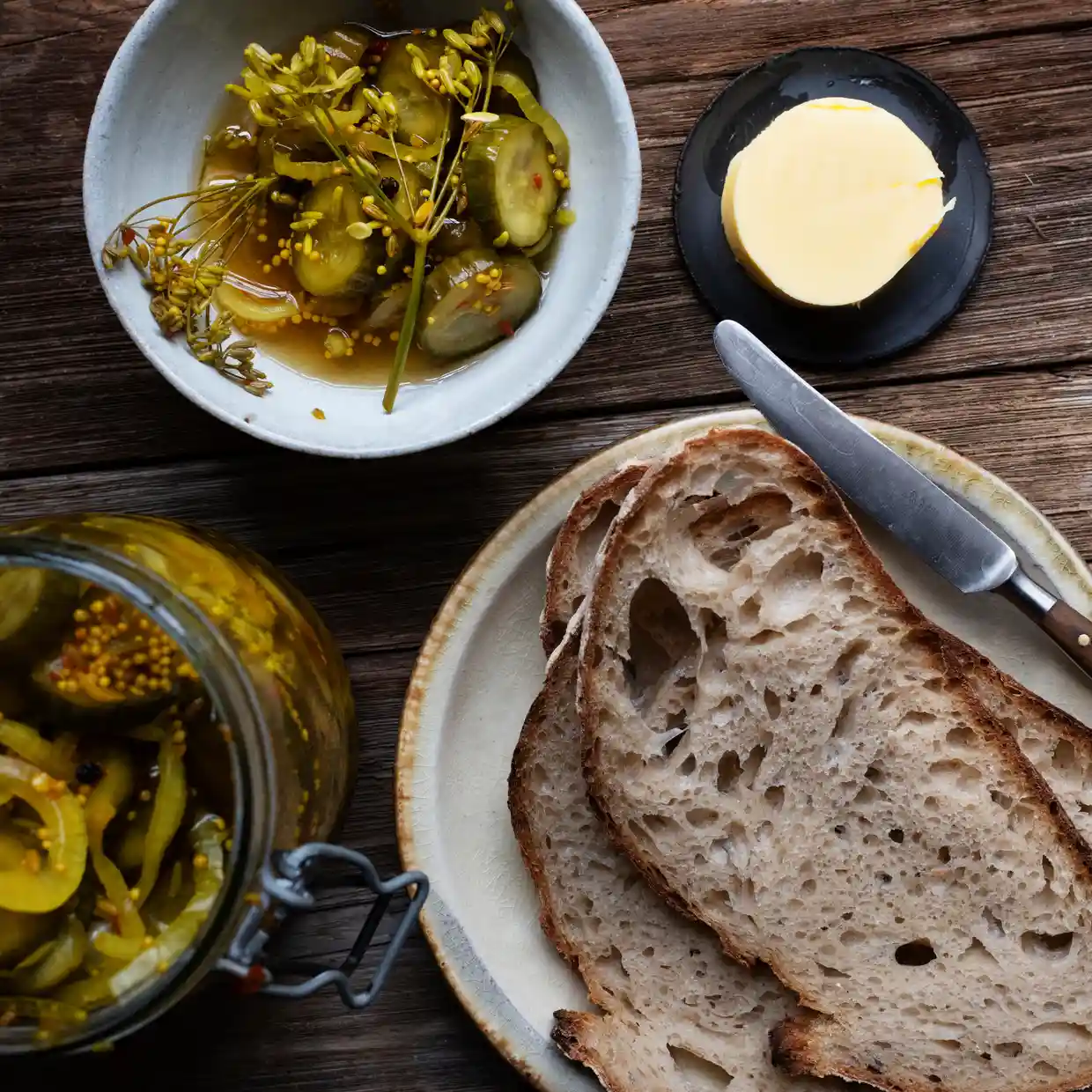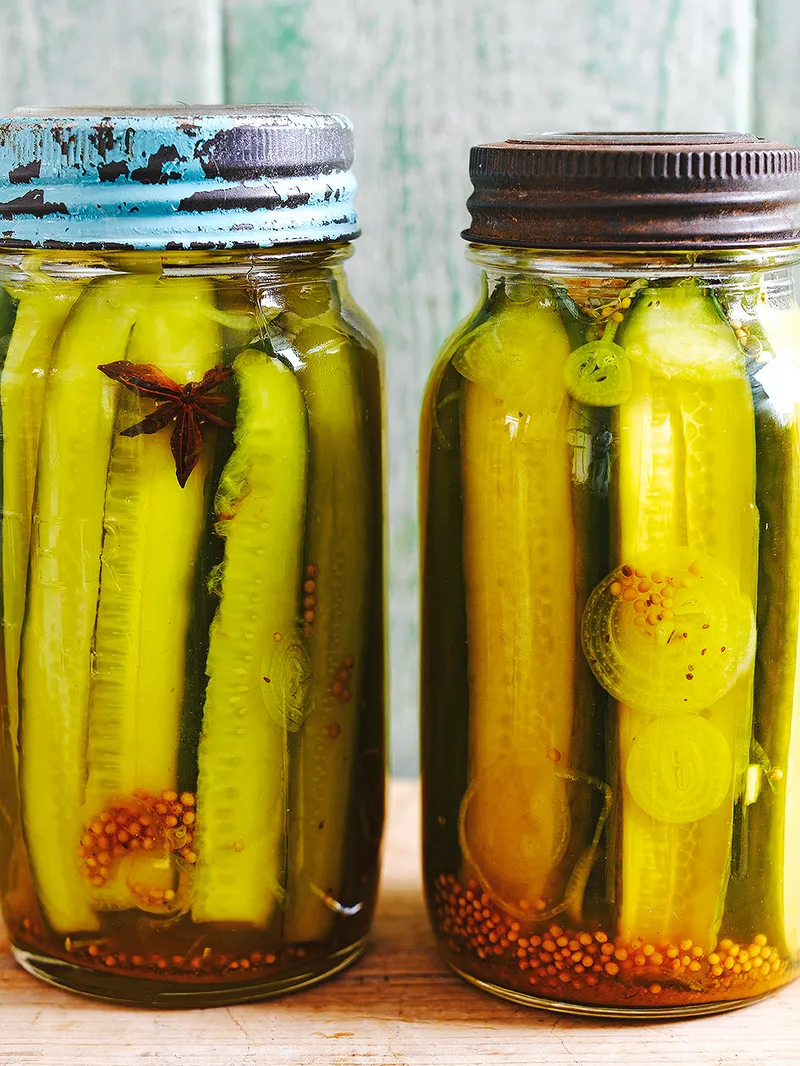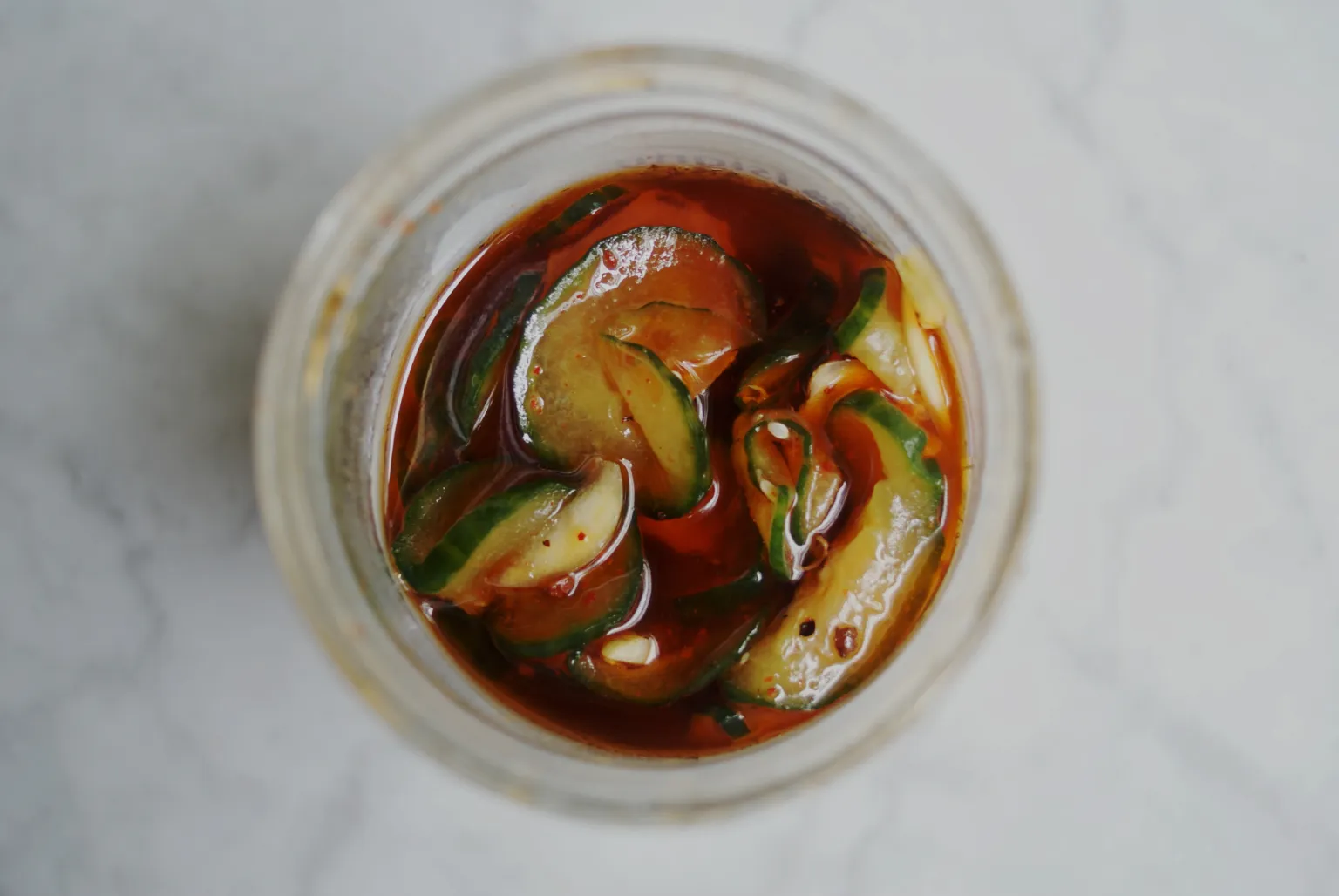Entry level pleasing pickles
- Feb 18, 2023
- 6 min read
“There is a reason we have pickles, and it is the same reason we crave good art: we are in it for the pleasure … we are in it for the rush of salt, the crunch and satisfaction, that perfect bite.” Danya Kukafka

In the past I have not been much into pickles. Indeed my only experience really in my youth was of pickled onions - which I shall come to. But recently in the modern spirit of 'waste not want not' - a saying my grandmother was often wont to declaim mind you - I have made the occasional venture into pickles.
So as I am entertaining the family on Sunday, in a vaguely Italian manner - I decided to do an antipasti platter, which would include pickles. This is because at the recent wine night I put out these pickled asparagus that I had made when asparagus was new and very cheap and they just disappeared. And I also remembered that David had really liked some cucumber pickles I made way back - and we are growing cucumbers at the moment with mild success. I don't really have a glut but I do have a couple more than we can eat.
Now pickles can be quite complicated and the most complicated verge into ferments - like sauerkraut and kimchi. I have made sauerkraut but I won't say it was super successful. So I think that's in the too hard basket. Easier to buy a jar from Aldi. Well any supermarket. As to Kimchi - well I have yet to taste it. I'm a bit nervous I have to say but I should make the dive one day - and you can certainly get that in the supermarket.

No what I'm talking about here are really, really simple things. So here goes - beginning with the simplest, most cheating recipe I have ever come across - from Jamie Oliver. Mind you it's not one I shall be making because it's for sliced chillies, and, as you know - we don't do chillies in this house. Mind you it might be useful. Here's what you do:
"Slice up the chillies and pickle them. The leftover juice from jars of gherkins or dill pickles is perfect for this – instead of throwing it away, top up the jar with a little vinegar, stir in a couple of teaspoons of sea salt, then just throw in a load of sliced chillies. This will preserve them to be used in all sorts of dishes for a couple of months."
Jamie Oliver
Now, again in the spirit of 'waste not want not' I have been keeping the pickling liquid from bought jars of cornichons and capers. The only problem with that being that I forget it's there. I wonder if you can do the same thing with other veggies? Onions, surely?

Jamie actually has two more recipes for pickled chilli slices - in order of complication - for the one on the left, having sliced your chillies into your jar:
"Add 3 teaspoons each caster sugar and sea salt and bunch of fresh mint if you like, cover with 500ml of your chosen vinegar so that all the chillies are covered and sealed, then put the lid on. Give the jar a good shake for a minute to dissolve the salt & sugar and stir in cool dry place."

And online you can find a rather more fashionable version which is combined with onions and peppers and designed to be consumed within a few hours.
I say fashionable because it's very similar to the plethora of recipes you will find on the net for quick pickled red onion slices, and to a slightly lesser extent, radishes and beetroot, or a combination of all three - occasionally with cucumber in the mix as well. You will find just about every trendy chef or cook has their own particular version. These are designed to be sprinkled on top of things, put into sandwiches or as accompaniments to blander items.

An example of this is one from Nigel Slater - shown here with some apple and Stilton puffs - which might be worth trying some time as well. His is a little bit complicated although only in the sense that there is dried fruit in the mix, but some recipes you see are little more than for soaking your sliced onions in some vinegar. And then you have something to perk up anything for just a moments work. So give it a go some time.
What started me on this was the cucumbers which I have grown and which are beginning to go bendy. I gather this is a really good moment to pounce on any vegetable you have like this and pickle it. Anyway I, of course, could not remember which recipe I used in the past - I now think it might have been Nigel Slater's Bread and butter pickles but since I couldn't remember I went for Jamie and his Spicy cucumber pickles - so I now have the jar below sitting on my kitchen bench waiting to cool down before it's put in the fridge. Not quite as beautifully straight and decorative as Jamie's, and the turmeric doesn't seem to want to dissolve, so is sitting on the bottom, but I'm sure they will be fine. Or if you want to go Asian you can try the differently flavoured Richard Hsiao's pickles from Nigella Eats Everything.
And that's sort of the point about these pickles really. Quick, easy, tasty and oh so versatile. Not to mention the sheer satisfaction of having produced something so good. The trick is to make a small quantity and keep them in the fridge. That way if they're no good it won't matter. And keeping them in the fridge means that they might actually get used - unless you hide them at the back.
"They taste better when cold anyway: brighter somehow, the sweet and sour and taste even more pronounced" Rachel Roddy

As you can probably see by now my go to people for pickle recipes have been Jamie and Nigel. Nigella does a couple but not much. Jamie has heaps. Delia, another Britisher also has a few, and, of course, the primary source should be River Cottage, especially Pam Corbin - the preserving queen. Indeed she it was whose asparagus recipe I used. It involved griddling the asparagus first - a nice touch. The picture at the top of the page is Matt Wilkinson's version - no oil involved there. Me I would go for the oil - as indeed the Mediterraneans do. And here I found a quote from Claudia Roden, which I thought was somewhat inaccurate:
"Although this area of gastronomy remains largely ignored in England, many cultures have turned the necessity of putting the July orchard in the January larder, into sheer delight." Claudia Roden
Certainly, at least from the late sixteenth, early seventeenth centuries on the British have been big into pickling and preserving. Mind you she does seem to realise this with her following words:
"A look through Indian cookery books will provide recipes for chutneys and spicy pickles, old English books will give mustardy and vinegary ones, while Mediterranean cookery books will have recipes for vegetables preserved in oil." Claudia Roden
Just a different approach. The British didn't have the oil.
Then there are the pickled anything type of thing. Gather your bendy and leftover veg and turn them into pickles. You can go the Hugh Fearnley-Whittingstall route which appears (I'm pretty sure it's his recipe) on Gourmet Traveller - their picture first, his second, or the Jamie route for Easy home-made pickles which is even simpler because his pickling liquid is simpler and moreover you don't have to cook it first.
But I can't just ignore the Mediterraneans and I will pick on eggplants as the best example. Claudia Roden in her wonderful book Picnic has the following recipe - alas no picture, but it's pretty simple:
"Aubergine pickle - Slice 1kg aubergines. Sprinkle layers with salt in a colander and allow 2 hours for the salt to draw out the bitter juices. Wash the slices and poach for about 5 minutes in about 1/4 litre wine vinegar and a little water to cover.
Drain and arrange in layers in a large glass jar, sprinkling each layer with a little crushed garlic (use 4-6 cloves) and a pinch of oregano (1 tablespoon in all). Cover with olive oil and close the jar tightly. The pickles are ready to eat in a few days and can be kept for months." Claudia Roden

And I just had to include Ottolenghi who has pickles here, there and everywhere. This one is from Extra Good Things - Burnt aubergine pickle with garlic yoghurt. Note the typical Ottolenghi way of serving it. On top of something dip like and scattered with other nibble things on top. It's a very definite style that we possible all copy these days.

I'll also add a footnote from a Guardian article on the ease and joy of pickling - what about fruit? Well turn it into a delicious drink:
“A few handfuls of raspberries or blackberries will transform the cheapest vodka, but the same goes for oranges and rum or sloes and gin. Place 500g fruit in a large jar, and cover with 250g sugar and a litre of alcohol. Seal, shake (continue shaking every day until the sugar is dissolved) and place in a dark cupboard for three months. Strain out the fruit, then bottle and store for at least a year. The longer the better." Phil Daoust/The Guardian
And don't think only those fruits are good for turning into liqueurs. Try anything - even nuts. The Spruce Eats has recipes for several.
So if you're looking for something to do this weekend, go and find something bendy in the fridge and pickle it. It's enormous fun and deeply satisfying. People seem to like them.













Comments